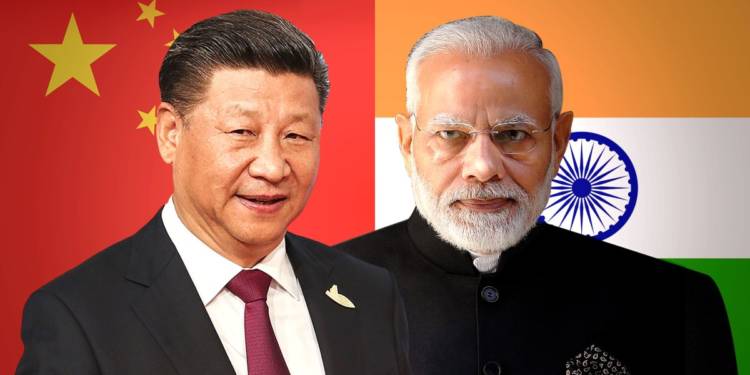Having been humiliated with an unprecedented counter-mobilisation from India’s side in Ladakh, China is now desperately in the need of finding specific spots to try and hurt India, notwithstanding the clown it makes out of itself while at it. On the lines of a building trade war between Australia and China, the latter now seems keen to try a similar tactic with India.
China has stopped importing pig and wild boar meat from India. Chinese Communist Party mouthpiece Global Times quoted a joint notice by the General Administration of Customs of China and the Ministry of Agricultural and Rural Affairs. The ban of pork imports from India was put in place in order to prevent a spread of the African Swine Fever (ASF) which has gripped the state of Assam, killing thousands of hogs.
Interestingly though, the Global Times report also indicated that the ban comes in the backdrop of heightened escalations between India and China in Ladakh, specifically the Galwan river valley. PLA troops allegedly have intruded at some points which India claims as its own, while Chinese Communist Party maintains that India must stop infrastructure work in the area. India has refused to do so, and is standing firm, while continuing with all development projects in the region.
It must be mentioned that millions of pigs have died in China itself, owing to the outbreak of African Swine Fever since August 2018 in the country. As such, the Communist state has suffered a major slump in pork output, witnessing a 16-year low. Meanwhile, an HT report suggests that the country’s sow herd has shrunk by 60% after the disease ravaged the entire country since 2018. China is the largest consumer of pork meat in the world.
Chinese Communist Party is looking at waging a mini, or even an all-out trade war against India, on the lines with which it has indulged Australia. Australia has been at the forefront of demanding an inquiry and investigation into the CoVID-19 outbreak, not bowing down before the obvious culprit of the same – China. As retribution, China has slapped Australian barley producers with 80% hiked tariffs. Further, the dragon has stopped importing meat from four abattoirs of Australia. There is also talk that China would be looking at stopping iron-ore imports from the southern hemisphere nation.
While Chinese Communist Party might be enjoying itself by employing such cheap tactics against Australia, it must be remembered that China-Australia have a trade surplus, thus giving the CCP enough legroom to try and leverage Australia into submission before themselves feeling the pinch of a full-blown trade war. In 2018, Australia’s exports to China stood at $136,287 million, while it’s imports from China were worth $78,321 million. The total trade volume of 2018 stood at $214,608 million.
In the case of India, however, the trends are exactly the opposite. There is a bilateral trade deficit between India and China, and India’s imports from the dragon are far more than its exports. In 2019, India’s trade deficit with China was to the tune of $56.8 billion. China’s exports to India stood at about $75 billion, and India’s exports to China amounted to about $18 billion in 2019.
In light of the figures stated above, it would take basic comprehensive ability for anyone to arrive at the conclusion that the first pinch of a trade war between India and China would be felt by the latter.
That being said, for China to nevertheless mention that import of pork was being stopped from India in the backdrop of heightened tensions tells a story. It shows how they have embarrassed themselves in Ladakh, by first flexing their muscles, only to be met with a similar flex by India, who has out-rightly refused to budge an inch. Therefore, the need of flexing its strained muscles elsewhere.
In present circumstances, China, rest assured, will be winning no wars that it chooses to wage. Behaving like a headless chicken in times of massive international outrage is only but expected, however, to take nasty decisions, such as initiating trade wars with multiple countries will land up nothing more than a bloody nose for China.




























